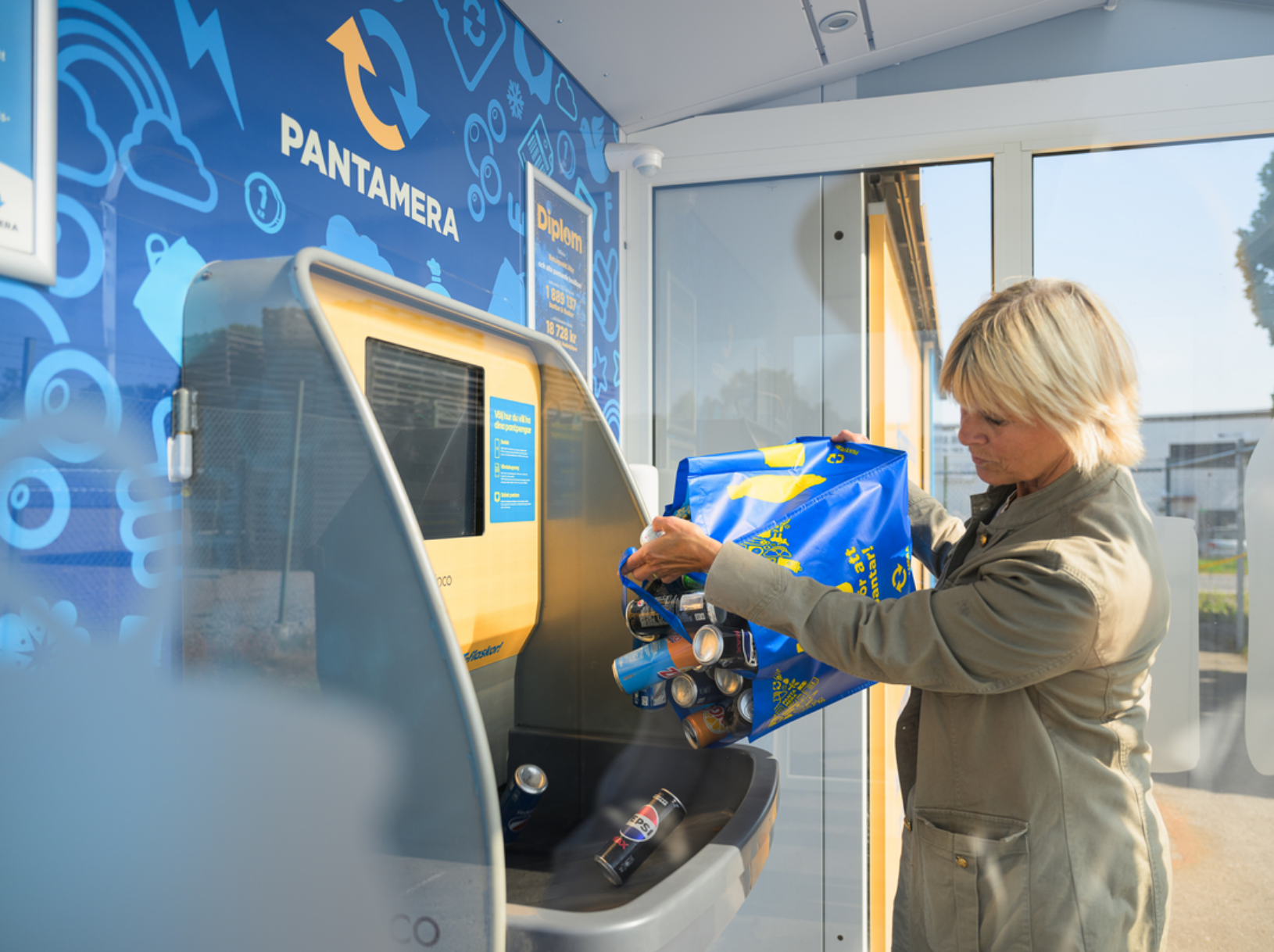

New data from Sweden’s Deposit Return System (DRS) operator, Pantamera (Returpack), shows that over 2.8 billion PET bottles and aluminium cans were returned in 2024 — a 6 per cent increase from the previous year. On average, each person in Sweden recycled 271 containers. Pantamera reports that the system prevented more than 180,000 metric tons of CO₂ emissions in 2024.
 Image Source: Anders Ristenstrand / Pantamera (Returpack)
Image Source: Anders Ristenstrand / Pantamera (Returpack)
According to the operator, Sweden’s deposit return rate reached 87.6 per cent last year, falling slightly short of the 90 per cent target. With a deposit increase introduced in January 2025, the goal is to boost recycling rates further and emphasize the importance of returning every bottle and can.
The DRS is designed to ensure collected PET bottles and aluminium cans are remade into new ones, reducing reliance on virgin materials and lowering carbon emissions. In January, plans to increase deposits on aluminium cans and PET bottles within Sweden’s Deposit Return System (DRS) were announced, with Pantamera/Returpack aiming to encourage consumers to sort materials correctly for the benefit of the climate and environment. The deposit on aluminium cans and small PET bottles rose from SEK 1 to SEK 2, while large PET bottles saw an increase from SEK 2 to SEK 3.
“We often call bottle and can recycling Sweden’s smallest climate action — because everyone can contribute to the environment and climate simply by returning their containers instead of throwing them away or placing them in the regular recycling,” said Sara Bergendorff, head of Sustainability and Quality at Pantamera.
Meanwhile, TOMRA introduced the TOMRA B7, the first TriSort reverse vending machine (RVM) in its Basic Line. Designed to make drink container recycling more accessible and efficient, particularly for small businesses and regions new to deposit return schemes, the machine can accept up to three types of containers, including PET, aluminium cans, glass bottles, and refillables.



Responses






